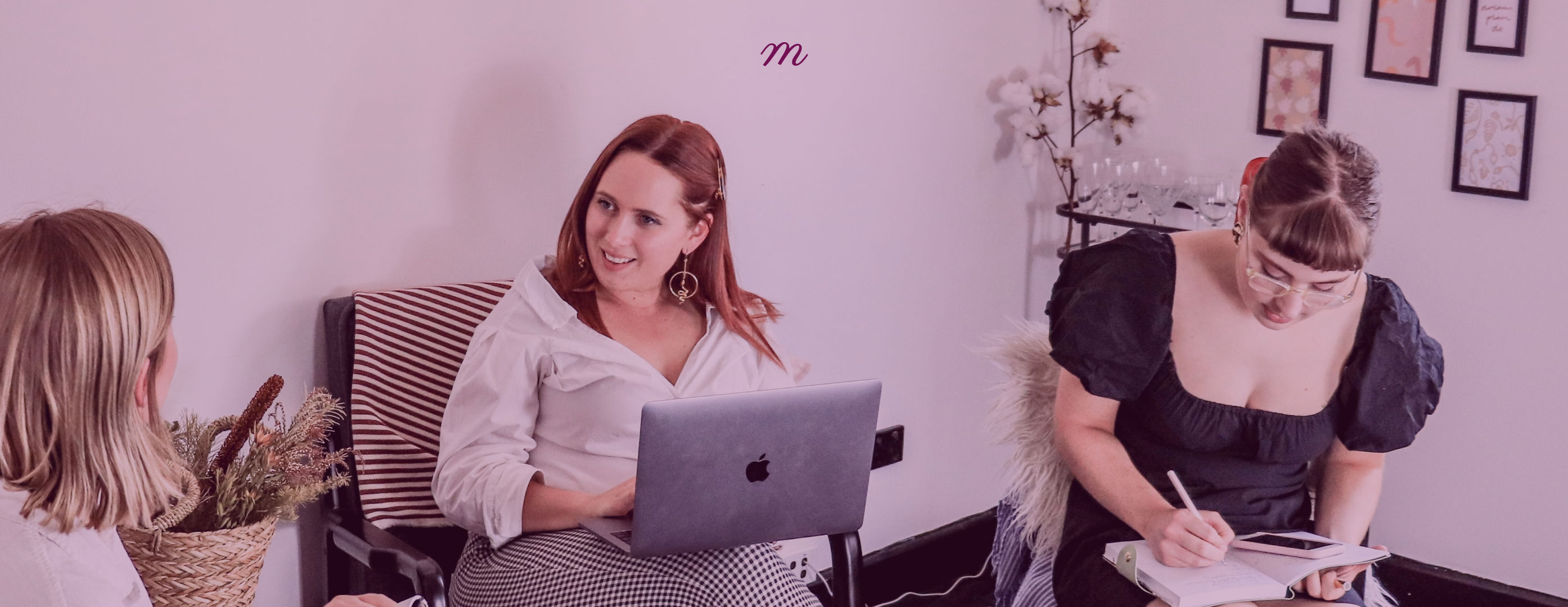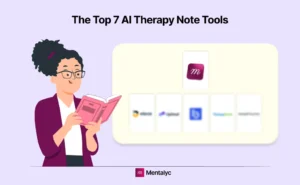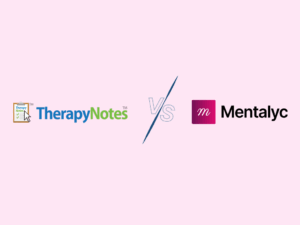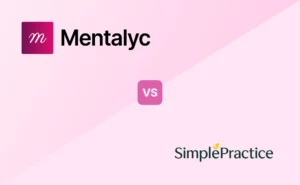Should I Take Notes During Therapy? There’s no simple “yay or nay” answer to taking notes during therapy. In this blog, we’ll discuss the very real and practical pros and cons of note-taking for practitioners of professional psychotherapy or counseling services.
We should begin this discussion by acknowledging that our healers go by various titles – counselors, therapists, social workers, marriage and family therapists, psychologists – and all are, in fact, human beings.
Acknowledging our humanity means understanding that we don’t all operate in the same ways, and it’s often counterproductive to assign moral value or judgment to our differences as professionals. Since no two brains function exactly alike, we see a lot of variation in how healers administer their skills.
Let it be known that there is absolutely nothing inherently bad about developing preferences in our work, such as in note-taking. We’re not here to evaluate different approaches as “right” or “wrong.” The goal is simply that, as professionals, we are willing to revisit topics like note-taking with an open mind to determine whether and how it’s possible to refine our practices further to the benefit of both our time and our clients’ experience.

New! Transfer your notes to EHR with a single click. No more copy-pasting.
We won’t deep dive into variables; however, it’s important to call out some contextual factors that influence and limit practitioner note-taking methods:
Location – hospital, community clinic, private practice, etc.
Autonomy – does the employer actually give a choice in how this is done?
Volume – is there time in the day to do it differently?
Compliance – HIPAA, health insurance, and payer rules or agendas (like value-based care) often conflict with practitioner preferences
Modality – Some therapy approaches require more documentation effort than others to be effective.
Resources – Software & EHRs or other technology can assist and/or create other barriers to our best documentation efforts.
Pros of note-taking
Below are the established “pros” of note-taking during a typical (not initial assessment or treatment plan review) psychotherapy session.
[Please note: This is by no means an all-encompassing or complete list because the clinician authoring this post is actually a human, too.]
It saves time
It saves time outside of the therapy session. When we do the necessary note-taking during the session, we get back administrative time that could be better spent on things like planning our next session, taking a bathroom break, eating our lunch, engaging in our own self-care, going home on time, etc. This time crunch may not be ideal, but it is the reality for many providers. Note-taking can also be a tool for review, alignment, and next steps with our clients as we wrap up the clinical hour.
Notes are accurate
The notes are accurate AF. We can rely on our notes as a source of truth when taken in real time, knowing that what was said during the session and what’s documented is factual and in alignment.
Emphasize key learning
Sometimes there are a few important specifics to a client’s story that we just don’t want to hope we can remember later. Jotting down the names of important people, events or topics can be hugely helpful to reference and return to later in the session or at another time. This can help our clients feel a sense of continuity and overlap from week to week.
No memorizing
Similar to #2, relying on memory is not ideal. Many of us already have too many tabs open in our brain’s browser. Particularly when leaving notes for the end of the day, the result can be documentation that is vague or just something we’re not super confident with. How many of us have had instances of not remembering things clearly or mixing multiple client stories together by mistake? Answer: A lot. Most learn this lesson the hard way – by reading back through a note with a client or asking a follow-up question, and they give you a puzzled look that says “Umm, that doesn’t sound like me.” Ouch.
Compliance targets
In a session, note-taking can also be valuable to ensure documentation is submitted in the time frames required by employers and stays HIPAA compliant – like avoiding putting a diagnosis or other sensitive information in the wrong chart. It can help protect us from having to worry too much about random audits or other practices that sometimes get clinicians “in trouble” for “poor” documentation.
Sidebar: We’re putting “trouble” and “poor” in quotes because that’s coming from someone else’s negative judgment about what we’re doing. Most days, I’d personally be fine with progress notes like this:

OK, we’ve established the pros – and stellar points were made.
Let’s now move on to the cons.
Cons of note-taking
Distraction
If I’m engaged in writing, then I’m not engaged in clinician-ing. Need we say more? One of the biggest criticisms of note-taking during sessions is that it prevents us from being as fully present as possible in the therapeutic relationship, which most clinicians take extremely seriously as the most vital aspect of the change process.
Discomfort
Discomfort or curiosity is natural. If we’re sharing heavy stuff with someone and they start writing in response, it is only human nature to be curious about what they find interesting. On some level, the therapist taking notes is offering a ranking system for certain elements of the story as more important than others. Now clients are focused on our process instead of their own.
Effectiveness
Is it really as helpful as we think it is? For some, this will be an exclamatory “Yes!” For others, our notes will end up looking like doodles, random words, or just add zero value to our documentation efforts. If it’s not a clear help, save it for later.
Who benefits?
If note-taking becomes excessive or only helps the therapist hit their audit scores, then the client may feel they are losing something in these moments. If clients disclose feelings that note-taking detracts value from their therapy time, we’ll need to know how to navigate this conversation and consider being flexible with our note-taking approach. Many clinicians opt to avoid this risk altogether.
Avoidance
Are there possibly other reasons why we must sit with a pen and pad in our lap? Are we actually avoiding something we clinically struggle with – like giving full presence with a neutral, consistent eye gaze, body language, and empty hands that are still? Writing can sometimes serve as a crutch to buffer the intimacy of therapy that can feel too intense, even for experienced clinicians. (Pro tip: Seek supervision on this if it feels like an area to explore further.)
Keep admin tasks out of therapy
Similar to #1, many clinicians feel strongly that therapy time is for therapy. Period. Even if we have to end 10 minutes early (hence the 50-minute therapy hour), it’s better for everyone to keep that time fully engaged and write the note after the client has left. Additionally, some clinicians prefer these precious minutes to process and think clearly in solitude about the information discussed.
The brain works differently
The brain works differently for each of us, as already mentioned. Some of us learn really well by taking notes in ways we’re taught in school that afford us academic success. But many of us (Hello empaths! Hello neurodivergents!) learn and retain information better in other ways- like experientially, visually, emotionally, and with the memory of our cellular beings. That means, if I write it down I’m disengaged from feeling the moment with my senses and emotions where it will stay with me much longer. Shout out to healers who can remember verbatim what clients say from week to week. You’re a special breed and a true MVP.
Wrap it up
Well, there we have it. A pretty robust working list of the pros and cons of in-session note-taking. Did any of the information discussed make you think differently on this topic? Whether you’re team Pro or team Con (or a mixture of both), what’s most important is that both you and your clients are feeling good about the work being done.
For additional exploration and the latest innovation in therapy note-taking, check out Mentalyc. They offer a HIPAA-compliant AI note-taking software for therapists, which means all of the documentation with far less time and effort.
Why other mental health professionals love Mentalyc

“A lot of my clients love the functionality where I can send them a summary of what we addressed during the session, and they find it very helpful and enlightening.”
Therapist

“Having Mentalyc take away some of the work from me has allowed me to be more present when I’m in session with clients … it took a lot of pressure off.”
LPC

“It’s so quick and easy to do notes now … I used to stay late two hours to finish my notes. Now it’s a breeze.”
Licensed Professional Counselor

“By the end of the day, usually by the end of the session, I have my documentation done. I have a thorough, comprehensive note … It’s just saving me hours every week.”
CDCII






